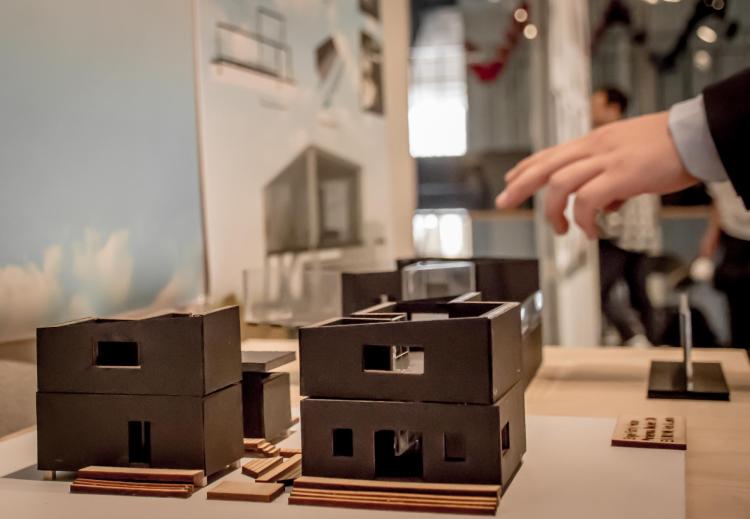 This spring more than 40 CU Boulder students and faculty sought solutions to preserve Boulder’s Ponderosa Mobile Home Park as it transitions to a more resilient model of affordable housing. The diverse 68-unit community has a long history of infrastructure issues, including impacts from the 2013 flood and challenges in providing utilities, health and safety services.
This spring more than 40 CU Boulder students and faculty sought solutions to preserve Boulder’s Ponderosa Mobile Home Park as it transitions to a more resilient model of affordable housing. The diverse 68-unit community has a long history of infrastructure issues, including impacts from the 2013 flood and challenges in providing utilities, health and safety services.
On April 27, approximately 60 city staff, Ponderosa community members and CU Boulder students and faculty, attended the event, “Lessons from Ponderosa Mobile Home Park,” sponsored by MetroLab, a CU Boulder-city of Boulder collaboration, applying university research to key urban design, technology and management challenges.
“Because the university is seen as a neutral party and we don't have a stake in the project, residents feel comfortable to say what’s on their minds, and we can gather useful information,” says Brian Muller, director of the Community Engagement, Design and Research (CEDaR) Center. 
The event began with an introduction by Muller and Kurt Firnhaber, city of Boulder’s deputy director of housing, which was followed by a choice of a gallery walk or "community conversations.” Participants interacted with students who presented their site/housing designs for Ponderosa (from Praxis class) and held mini workshops to test prototypes for community engagement techniques (from Inclusive Community Design class). Every 10 minutes, the gallery walk would break for a presentation from one of the CU partners including, Environmental Design Praxis Studio (Neal Evers and Seth Wilberding); Inclusive Community Design (Bruce Goldstein); Boulder Affordable Housing Research Initiative (BAHRI) (Jennifer Fluri); Sustainable Community Development Clinic (Deborah Cantrell) and Growing Up Boulder (Aria Dellepiane, Nia Efeoglu, Catherine Hill and Sara Taketatsu).
A subsequent discussion of how Ponderosa community’s experience could inform organization and design of affordable housing in Boulder was based on work by students from the Program in Environmental Design, the University of Colorado Law School, Boulder Affordable Housing Research Initiative (BAHRI), Growing Up Boulder (GUB) and the neighborhood.
Closing thoughts included the desire for more cross fertilization for design/social sciences disciplines; more interactions with city at the beginning to help the university align its goals with the city’s goals and establishing timelines in advance.
